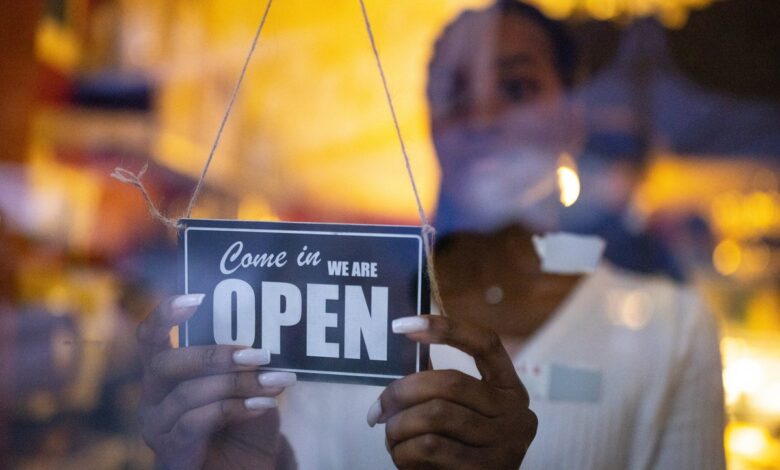BIPOC Grant-Giver And Fintech Platform ‘Hello Alice’ Discusses $130M Series C Close Amid Racial Discrimination Lawsuit

Hello Alice, a fintech co-founded by Elizabeth Gore and Carolyn Rodz, provided $25,000 grants t0 Black-owned small businesses earlier in 2022. Last year they were named in a lawsuit by anti-affirmative action conservatives that claimed they infringing on non-Black business owners’ civil rights.
Now, not only is Hello Alice fighting the suit, they have more than $130M in capital to back the effort and continue supporting minority-owned businesses.
“It’s always exciting when the company is doing well and growing but what’s particularly special about this milestone for us is the environment in which we’ve done it and the reasons for which we’ve done it,” Rodz tells ESSENCE. “When we started Hello Alice, it was with the belief that when all business owners succeed, it was better for everyone. And that meant building a really inclusive entrepreneurial ecosystem. And in the beginning, when we first went out to raise capital, the number of people that told us that we should be a nonprofit, that this wasn’t a viable business model, that what we were trying to do wasn’t possible, was infinite. People said ‘the focus on diversity inclusion is a nice thing to do, but it’s not the best business move.’ Two, just small business in general at the time. And in a pre-COVID world, everybody was focused on startups and high growth. And to think about Main Street businesses as a viable market, so many people told us it wasn’t a payable market. But a lot of people believed in us. And so the exciting part is, one, we rallied an incredible community of 1.5 million small business owners behind what we’re doing, which is amazing.”
Investors in the round include Backstage Capital and Tamera Mowry among many others.
Rodz says they plan to use to capital to expand Hello Alice’s grant allocation to BIPOC businesses as well as grow its suite of AI-driven financial health tools and products which include the Hello Alice Small Business Mastercard, the Business Health Score, the Equitable Access Program and the $70 Million Equitable Access Fund, and Elevate the American Dream.
“Bringing AI into the core of what we have always done is opening up a world of possibilities for a company like ours,” Rodz tells ESSENCE, explaining that the platform plans to further develop its platform to provide small business owners targeted resources for small business owners.

Rodz adds, “It’s accelerated the process tremendously for us. A huge piece of where we’re focused is around our recommendation engine. We’ve always been focused on how do we bring the right offer, the right opportunity the right resource to the right business owner at the right time. Making that match is at a high level in broad segmentation. It’s quite simple. If we say, Okay, you’re a black female owned business, we can segment out resources for you.”
In the wake of the high profile anti-discrimination lawsuit, Rodz said she is grateful for everyone that supported the company in its mission.
“We get to prove that supporting small businesses is a huge opportunity,” Rodz said. “Again, when we started this company, when Elizabeth and I came together, the thing that brought us together around this business was everybody’s talking about the dire situation for small business. More than 50% of companies fail in their first two years. All these women aren’t getting the capital that they need—Black people and Latinx populations aren’t getting the capital that they need. This is a huge opportunity. Imagine if small business owners had the capital they need at their fingertips—what would they be able to do? How would the world change? Imagine what it looks like for the corporations trying to sell to those businesses. Now they’ve got a huge market of successful, thriving businesses. Imagine what it does for governments that are now getting tax revenue from these companies that are thriving and growing. Everybody’s going to win.”



